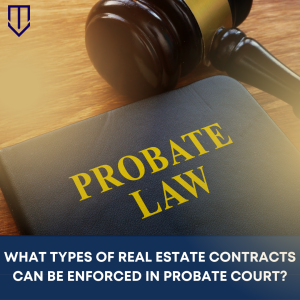 If you’re venturing into a real estate transaction and are daunted by the contracts, you’re certainly not alone. The jargon and intricate legal parlance can often make these contracts seem more complex than they actually are. Yet, the good news is that, armed with some guidance and understanding, these contracts become much less intimidating. Our friends at Cohen and Cohen delve deeper into the realm of real estate contracts below.
If you’re venturing into a real estate transaction and are daunted by the contracts, you’re certainly not alone. The jargon and intricate legal parlance can often make these contracts seem more complex than they actually are. Yet, the good news is that, armed with some guidance and understanding, these contracts become much less intimidating. Our friends at Cohen and Cohen delve deeper into the realm of real estate contracts below.
Key Aspects of a Real Estate Contract
Real estate contracts can be intricate and can have significant variation based on local laws and the specific details of the transaction. Nevertheless, there are several fundamental components that most real estate contracts should encompass to be deemed valid and enforceable:
 California Partition Law Blog
California Partition Law Blog


 Frequently, when homeowners are dealing with financial difficulties, equity purchasers may induce homeowners to sell their homes for a fraction of the price. An “equity purchaser” is anyone who acquires title to any residence in foreclosure, with some exceptions. (Cal. Civ. Code § 1695.1(a)). The California legislature believed that homeowners were losing their homes to foreclosure due to “fraud, deception, and unfair dealing by home equity purchasers.” (Cal. Civ. Code § 1695). To combat these instances of deceit, the Legislature implemented the Home Equity Sales Contract Act, found in Title 5 of the California Code of Civil Procedure, Chapter 2.5, sections 1695.1-1695.16.
Frequently, when homeowners are dealing with financial difficulties, equity purchasers may induce homeowners to sell their homes for a fraction of the price. An “equity purchaser” is anyone who acquires title to any residence in foreclosure, with some exceptions. (Cal. Civ. Code § 1695.1(a)). The California legislature believed that homeowners were losing their homes to foreclosure due to “fraud, deception, and unfair dealing by home equity purchasers.” (Cal. Civ. Code § 1695). To combat these instances of deceit, the Legislature implemented the Home Equity Sales Contract Act, found in Title 5 of the California Code of Civil Procedure, Chapter 2.5, sections 1695.1-1695.16. Generally, the seller of a home has disclosures that they are required by law to make to any prospective buyer. This also applies to the
Generally, the seller of a home has disclosures that they are required by law to make to any prospective buyer. This also applies to the  Real estate contracts are an expansive field of both law and life.
Real estate contracts are an expansive field of both law and life.